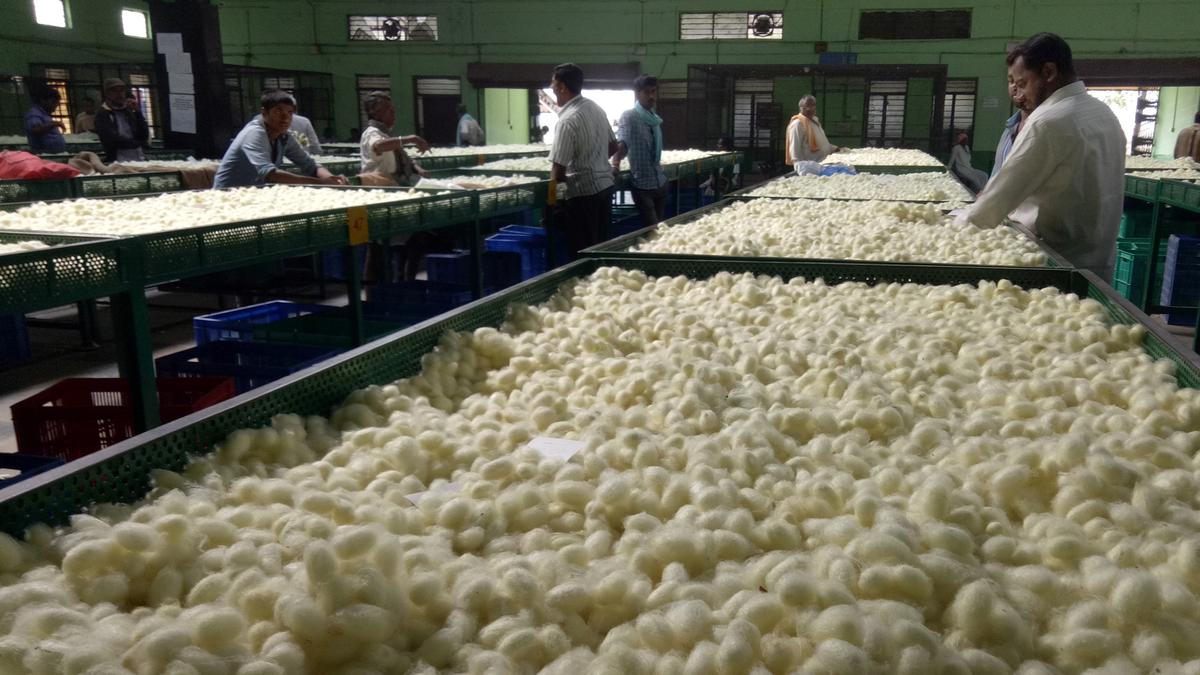By Union Minister
Copyright thehindu

The Central Silk Board’s (CSB) ‘Mera Resham Mera Abhiman’ (MRMA), a nation-wide sericulture technology transfer campaign aimed at strengthening India’s sericulture sector and empowering the farmers, has been extended till Deepavali.
Though the 100-day MRMA, translated as ‘My Silk My Pride’, was launched by Union Minister for Textiles Giriraj Singh in Ranchi on June 19, 2025, the actual programmes, viz. awareness campaigns among farmers, training programmes, and field demonstrations took off only by the end of the month.
Additionally, farmers across the country were busy with Dasara and Navaratri celebrations during the last week of September. Hence, though the MRMA programme was scheduled to be concluded by September 30, the authorities have decided to extend it by ten more days till Deepavali.
Explaining the significance of the MRMA programme, CSB’s Joint Secretary (Tech) Naresh Babu said sericulture was the livelihood of more than 9.7 million people across 26 States. “Despite India being the second largest producer of silk in the world, farmers continue to face challenges in adopting advanced technologies due to limited awareness and extension support,” he said, adding that MRMA was launched to bridge this critical lab-to-land gap.
A total of 128 scientists from nine main CSB institutes, including research and seed units along with 80 sub-units, were directly involved in the campaign, reaching the remotest corners of 25 States and one Union Territory through awareness and training programmes, covering mulberry, tasara, eri, and muga sectors. The MRMA programme was implemented in a total of 129 districts across the country.
While 1,300 programmes, including awareness campaigns, training programmes, and field demonstrations, conducted so far have covered an estimated 68,000 farmers, an additional 200 programmes are expected to be held over the next few days till the conclusion of MRMA, reaching more than 75,000 farmers.
The programme has also helped scientists identify “researchable” problems faced by the farmers while documenting and adopting farmer-led innovations, he said.
The MRMA programme, which comes ahead of the conclusion of the Silk Samagra programme for increasing the production of silk and raising its quality to international standards in March 2026, would also help CSB identify policy inputs to devise a new campaign aimed at helping India reach its target of producing 50,000 tonnes of raw silk annually by 2030, Mr. Babu said.